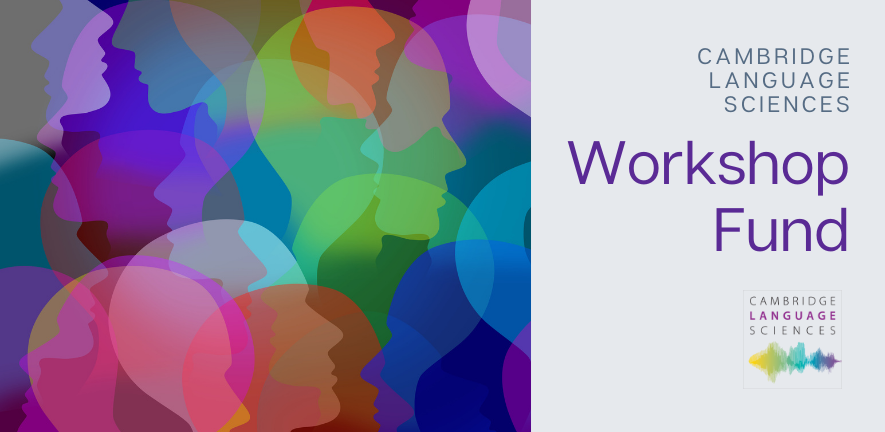
The Language Sciences Workshop Fund offers funding for the organisation and delivery of interdisciplinary workshops on any relevant topic to researchers in language sciences.
Some example topics or activities that could be funded are:
- Promote research connections and collaborations
- Enable stakeholder and public engagement with ongoing or planned research
- Strengthen research networks and promote intellectual exchange
- Support the development of new project ideas
- Advance and share methodological approaches
New call for Language Sciences Workshop Fund, 18 July 2025
The Language Sciences Workshop Fund offers funding for the organisation and delivery of interdisciplinary workshops on any relevant topic to researchers in language sciences.
However, this round, which is funded by our AI@Cam project “Improving Language Equity and Inclusion through AI”, is restricted to AI-focused proposals that support language equity and inclusion.
Funding of up to £2,000 is available per workshop but we would also consider larger funding requests for exceptional applications.
This is an internal call for researchers at the University of Cambridge and affiliated institutions only.
Click here to access the Workshop Fund Application Form
Key dates:
Please be aware we are entering the second year of the AI@Cam project, and the funding period is limited. All activities must be completed by the end of September 2026.
-
This is a rolling call meaning you can apply at any time. Applications will be considered on submission.
-
Workshops should be completed within 12 months and no later than 30 September 2026.
-
The final deadline for applications is 23:59 (midnight) on Sunday 21 December 2025. However, we encourage you to submit your application as early as possible rather than waiting until the deadline.
Eligibility & funding criteria:
- Proposals will be evaluated by peer review and by the Language Sciences Management Committee. Where proposals are found to overlap, cooperation between the different groups will be encouraged in the interests of involving a wider range of researchers.
- All applicants must be full members of the University of Cambridge or affiliated institutions.
- Funded workshops should be cross-disciplinary, ideally involving contributors and attendees from multiple research fields and departments.
- External speakers and participants may be invited.
Conditions of funding:
- Workshops should be completed within 12 months and no later than 30 September 2026.
- A written report on the workshop should be provided for publication on the Cambridge Language Sciences website within 2 weeks after the event.
If you have any questions about this funding, please email contact@languagesciences.cam.ac.uk
